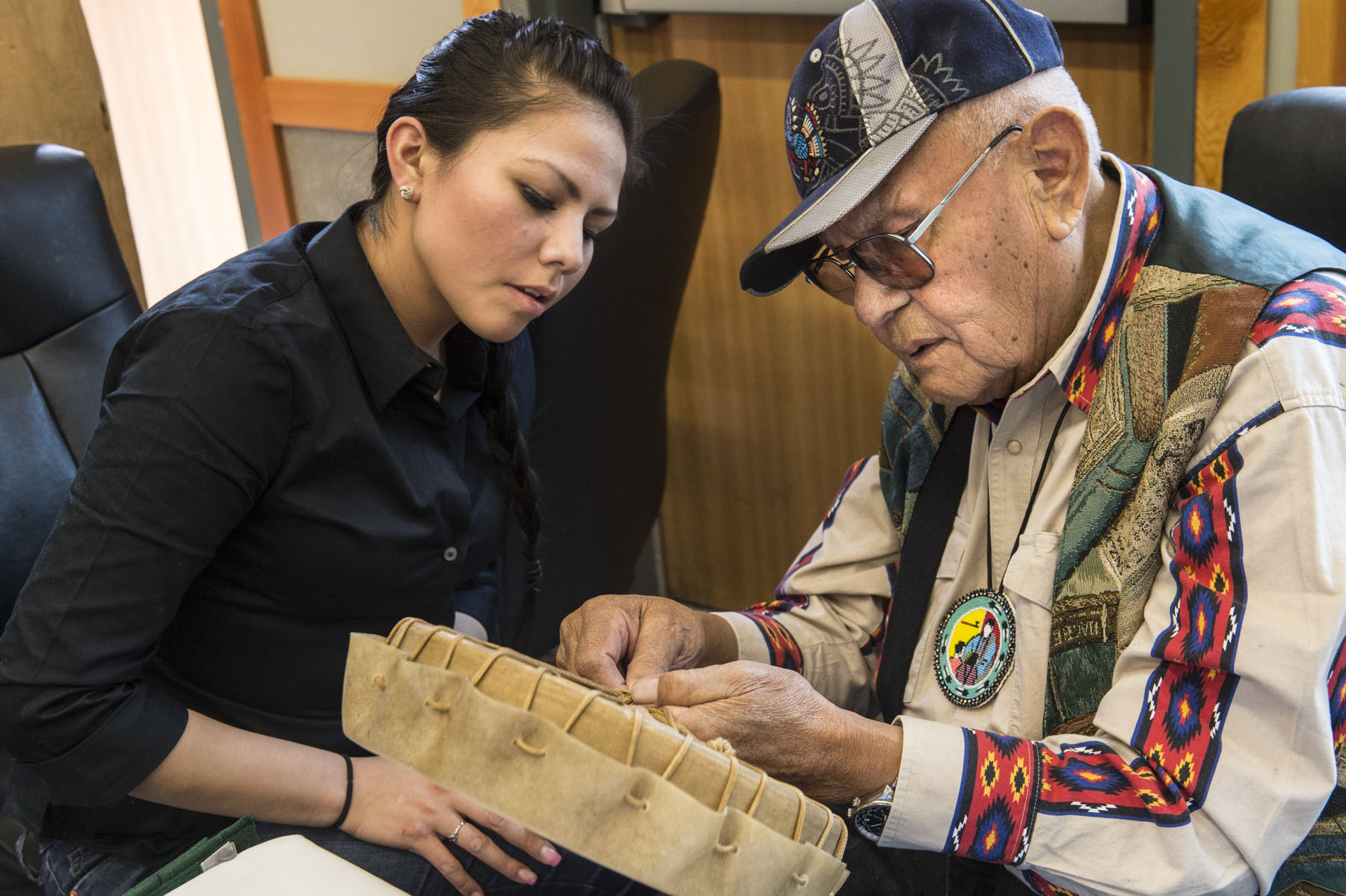Indigenous Youth Are Reshaping the Future

We have all been young Canadians at some time and voiced our opinion on the direction of this country. Some of us have even taken the path to political representation once we got old enough to be taken seriously. Today’s youth have the kind of insight and skill at building connections that could no doubt turn around the most jaded political consciousness. A disconnect for youth, however – something we’ve heard with every generation – is the fact they often don’t join their elders in making their statements. Too bad, because they aren’t busy rehashing the past, they are reshaping the future, and have the energy, determination, and access to social media to do it.
A surprising number of aren’t looking for status symbols or economic success, because that’s so yesterday. Instead, Canadian youth are mobilizing in provinces like Alberta, Ontario, and across Canada, joining Indigenous voices to reclaim a shadowed history, challenge reckless economic development, and rebuild morale and strength at home where it counts the most.
I joined The Banff Centre as the first Nexen Chair in Indigenous Leadership to begin a new dialogue on the successes of Alberta First Nation and Métis community and business interests through a research project funded by the Rural Alberta Development Fund. The youth that joined the discussion on “wise practices” in Indigenous economic development added an incredible passion for cultural renewal and an inspiring commitment to improving economic and socio-cultural prospects in their communities.
The Canadian Roots Exchange, co-founded at the same time in Ontario, brought together Canadian youth from every cultural background imaginable to build bridges of understanding and reconciliation through intercultural/intergenerational leadership exchanges. Motivated by the vision articulated in the Royal Commission on Aboriginal Peoples (RCAP), and a growing desire for an inclusive, compassionate and safe exchange of knowledge, support and ideas, a small handful of youth launched the first of 22 cultural exchanges across Canada.
Indigenous peoples young, experienced, and elder have been rebuilding their societies and launching impressive economic initiatives for decades. Look anywhere in this country and you can see Indigenous owned and operated hotel complexes, financial institutes, golf courses, vineyards, condominium developments, medical centres, wellness centres, trucking operations, and grocery stores. You will also see Indigenous scholars and entrepreneurs who are generating and participating in community dialogue that is deeply inspiring, asks hard questions about self-sufficiency, and sets high aspirations for their communities, education, and business ventures.
Yes, there are too many communities struggling to acquire proper housing and access to services taken for granted south of the 60th parallel, but those are communities who were aggressively disrupted by a government who encouraged a move from their original settlements into artificial communities situated on flood plains for bureaucratic convenience as far back as the 1940s. Now, the Attawapiskats of Canada are being held responsible for historic interference they had no control over, and have had to resort to civic disruptions of their own to get their message across to the rest of Canada. Their message includes rejection of the “violence of Crown benevolence” that has crippled traditional governance through the Indian Act and rendered treaty obligations moot.
What we all need is perspective and appreciation for the sheer diversity and ingenuity of Indigenous peoples across Canada, especially for the vision of their youth and the future to which they aspire.
Is it possible to go back to go forward when it comes to resolution of longstanding grievances between Indigenous peoples and the Canadian state? What will young people who are agitating across Canada through movements such as “Idle No More” today, and yesterday’s Red Paper of 1969, and many other Indigenous movements for treaty recognition and concrete actions by government, see as acceptable? Can we bring the old guard and young voices together to galvanize Canadian society towards a mutually supported and sustainable conclusion? Some of us think so, and are contributing everything we can towards shining a light on our successes. We are producing an articulate, engaged, and forward thinking Indigenous population in this country, and welcome all Canadians to join and support this movement.
Cynthia Wesley-Esquimaux, PhD, is a member of the Georgina Island First Nation in Ontario, and was the first Nexen Chair in Indigenous Leadership at the Peter Lougheed Leadership Institute. She has taught Native studies, political science, history, and business at Georgian College, Seneca and Laurentian University, and Aboriginal studies and social work at the University of Toronto.